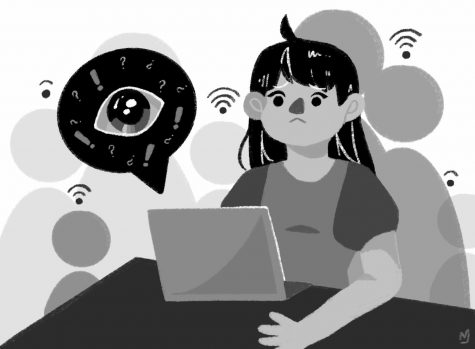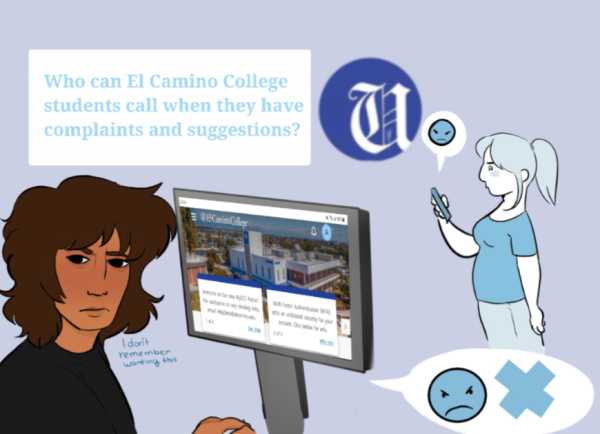Test proctoring software that films students is an invasion of privacy and presents problems with equity

Test-proctoring software such as Proctorio, Factorial and Respondus Monitor and required camera-on exams in online instruction are an invasion of students’ privacy and create an equity issue.
Until Dec. 31, 2020, ECC had a contract with Proctorio and used its services. However, ECC now uses Respondus LockDown Browser which is used to lock certain functionalities on students’ computers while they’re testing without filming the student and Respondus Monitor which takes video of student actions and surroundings.
In addition, professors at ECC are allowed to require students to turn their cameras on during exams. If a student is under the age of 18, however, professors need parental permission to force minor students to have their video on, according to the Online and Digital Education Best Practice guidelines.
Since the coronavirus pandemic began, teaching faculty worldwide have adopted the use of proctoring software in their online instruction, professors at El Camino College included.
Companies like Proctorio are used to monitor students during their online exams, including the students’ computer screens and physical surroundings, to ensure that students aren’t cheating
In March 2020, ECC students were forced to begin learning from their homes in whatever way they could. As they went from classroom and lecture hall to bedroom and living room, students had to quickly become comfortable with transforming their homes into something that would look professional in the perimeter of a Zoom screen.
There are a number of students at ECC who are housing-insecure, have children at home or simply just don’t have access to their own space. For those students, looking off-screen at a distraction or having others in the background may be considered cheating by a professor.
Students with disabilities affecting their eye movement such as nystagmus, Tourette Syndrome or amblyopia are also put at a disadvantage with required video meetings and exams for the same reason. If they move their eyes in a disordered way, it could be considered cheating by the professor who would have no way to know the difference between a student looking off-screen for a reason they deem valid and a student looking off-screen to cheat.
Requiring students to have their video on also adds a barrier to education for students without reliable internet access or even recording software. ECC has provided personal wifi hotspots and laptops, but students who can’t get to campus for whatever reason, such as students living in other states or countries would not have been able to receive such equipment.
If a professor in an online synchronous class requires that students take exams with their cameras on or proctoring software filming them, they are instructed to inform students in their syllabi, giving the student from the beginning of the semester until the drop deadline to decide if they still want to take the class.
If a student cannot accommodate taking exams with video, they must find a new course to take that is still open, still adding students and that also doesn’t require the use of video, which is not information included in the class schedule.
Students usually have the option to request special accommodations through the Special Resource Center. While students can still do so, the SRC is currently only offering services to students online or via phone and email, according to their page on the ECC website so students cannot take tests there either at the moment.
This long process of trial-and-error registration and dropping could take weeks that students who are trying to follow their graduation pathway or educational plan simply don’t have. If a student waits past the deadline to drop the course, it will be notated on their transcripts, potentially impairing their ability to transfer.
The Respondus program ECC has a contract with now costs the college approximately $4,647 for the first year and $5,345 for following years, according to a letter from ECC President Dena Maloney to the Board of Trustees on Jan. 11.
The use of Respondus LockDown Browser, without the additional Respondus Monitor program or required camera-on testing is enough to curb cheating in students by locking copy and paste, screen recording, window navigation and more, without invading their privacy and making testing much harder for certain groups of students.













